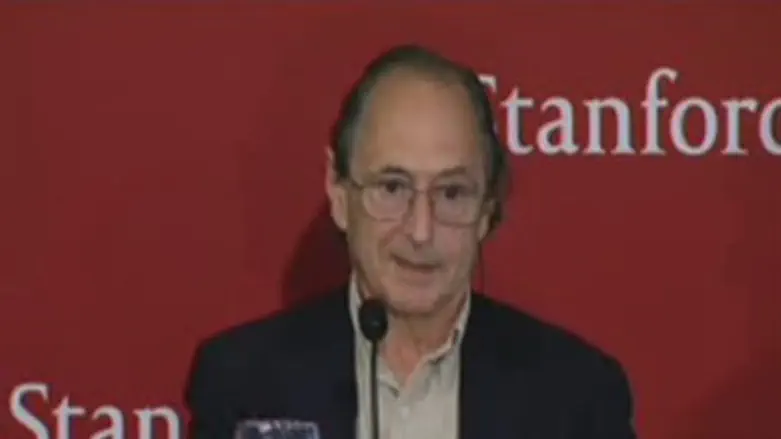
Michael Levitt, one of the winner's of this year's Nobel Prize in Chemistry, is an Israeli citizen, born in South Africa, and was a professor of chemical physics at the Weizmann Institute between 1980 and 1987. He left Israel because he could not get tenure as a professor in the Weizmann Institute. In an interview with Channel 10 Television, Monday, Levitt said that during the 1980s – a period of high inflation and general economic disorder in Israel – tenure would have been his only insurance of a paycheck.
Speaking earlier on Army Radio, Levitt said that remaining in Israel to continue his research would have been “complicated. At the time the Weizmann Institute, where I was doing my research, felt it did not have enough budget to support our work. This is not a criticism of the Institute, which generally does try to advance important work. But our research would have taken a long time to develop,” and the Institute was unable to invest for the long term.
Levitt, along with fellow professors Arieh Warshel and Martin Karpus, won the prize for “development of multiscale models for complex chemical systems,” the Noble Prize committee said.
“In general I cannot say that the conditions in Israel were not good,” he said, adding that he would like to move back to Israel on a permanent basis one day, with his Israeli wife. Currently, he said, the couple owns an apartment in Rehovot, but they would like to move to Tel Aviv, which he called “an amazing and exciting city. That's what I would like to do” with his share of the $350,000 prize, which he won together with fellow Israeli-born Warshel and Vienna-born Karpus, who is Jewish. “But I know that money would not be enough to buy an apartment in Tel Aviv,” he added.